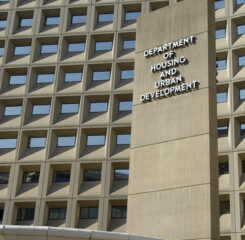LeadingAge Nursing Home Advisory Group – July 2021
Cory Kallheim, Vice President of Legal Affairs and Social Accountability at LeadingAge, joined the Nursing Home Advisory Group call on July 27, 2021 to discuss the new OSHA Emergency Temporary Standard (ETS). The presentation was then followed by policy updates from LeadingAge staff and a facilitated discussion with group participants on essential caregivers.
OSHA Emergency Temporary Standard
Cory Kallheim, Vice President of Legal Affairs and Social Accountability at LeadingAge, discussed the new OSHA Emergency Temporary Standard (ETS). The OSHA ETS was published in the federal register on June 21, 2021 and went into effect in July 2021, with enforcement of some provisions beginning on July 6 and others on July 21, 2021. LeadingAge sent a letter to Acting Assistant Secretary of Labor James Frederick in early July advocating for a 6-month delay of enforcement and a 30-day extension for comments to the federal register. While the enforcement delay was not granted, the extension for comments was and comments are now due to the federal register by August 20, 2021.
In working toward compliance, Kallheim cautioned providers that there was no need to recreate the wheel. Much of what is required by the OSHA ETS is already being carried out by providers. The key is knowing how to demonstrate that your practices meet the requirements. LeadingAge hosted a virtual update with Baird Holm, available free to LeadingAge members on the LeadingAge Learning Hub, to explore compliance.
The ETS applies to healthcare settings, including nursing homes, assisted living, hospitals, and physician settings. As with other COVID-19 policies, there is some question about whether independent living on a Life Plan Community campus would also be subject to these requirements. When making the decision to include or exempt independent living, providers should consider the types of services provided in the independent living and the amount of cross-over staff working in both the independent living and the healthcare settings.
Many questions arose during Kallheim’s presentation related to the leave provisions. Kallheim stated that providers have a few options for how to meet leave provisions, including by using employees’ paid time off or through existing COVID-related paid time off programs. Providers are responsible for meeting these provisions, regardless of where the employee’s actual exposure occurred. Employees who were exposed to COVID-19 outside of work are entitled to leave in the same way as employees whose exposure occurred within the healthcare setting. Currently, there is no exemption related to employees who decline vaccination against COVID-19 and providers should refer to quarantine and isolation guidance from the Centers for Disease Control and Prevention (CDC) to determine how long an employee should be restricted from work due to exposure or infection.
The OSHA ETS will remain in effect for a period of 6 months, at which point OSHA will need to determine whether the provisions could be allowed to lapse or whether they should be made permanent. It is hoped that guidance from OSHA on the emergency temporary standard will be released soon. Kallheim emphasized that if OSHA arrives at your door, remain calm and take your time. Find out why they are there, then contact your employment counsel to help determine next steps.
Policy Updates
Provider Relief Funds. The Provider Relief Fund reporting portal opened on July 1. Providers will submit reports for funds received between April and June of 2020. More information is available here. LeadingAge recently hosted a webinar with partner CLA to review reporting requirements. A recording of this webinar will be available on the LeadingAge Learning Hub. Also, check out this article from LeadingAge on reporting lost revenue.
National Public Health Emergency and 1135 federal blanket waivers. Health and Human Services Secretary Xavier Becerra extended the national public health emergency (PHE) as a result of COVID-19 on July 19, 2021. The public health emergency was first declared in January 2020 and has been extended continuously since that time. Each extension is effective for 90 days, with this latest extension covering through mid-October 2021. As a result of this extension, the 1135 federal blanket waivers issued by the Centers for Medicare & Medicaid Services (CMS) also remain in effect unless otherwise noted by CMS. CMS continues to evaluate all waivers and may make changes in the future but have given no hints at this time as to what might change or when. We do know that CMS will give advance notice of any waivers that are terminated in advance of the expiration of the public health emergency. More information about 1135 federal blanket waivers, including which waivers remain in effect at this time is available here.
Essential Caregivers bill. Legislation has been introduced in the House to allow residents in long-term care facilities to designate up to 2 essential caregivers who would have continued access during a public health emergency. The bill would allow up to 12 hours of visitation per day and essential caregivers are defined as those who provide assistance with activities of daily living, emotional support, or companionship. LeadingAge took a look at Essential Caregiver programs across the country in February 2021. This analysis is available here. Text of the Essential Caregivers Act of 2021 is available here.
Workforce for an Expanding Economy Act. A bill was introduced in the House that would create a new visa class to fill non-seasonal, non-agricultural work opportunities that do not require a college degree. The program would allow foreign-born workers to enter the United States on a temporary work visa to address workforce shortages in healthcare and aging services, among other fields. Text of the bill is available here.
Infrastructure bills. Negotiations continue on the 2 separate tracks for infrastructure. The first bill is expected to cover bridges and roads infrastructure, including high-speed, broadband internet access for all. A second bill would cover “human infrastructure,” which is where we expect to see investments in home and community-based settings, affordable housing, and expansion of the Medicare program to include hearing, vision, and dental benefits.
American Rescue Plan money. HHS has announced that $103 million of American Rescue Plan money will be directed toward reducing burnout and promoting mental health in the healthcare workforce through 3 funding opportunities. Read the announcement from HHS here. Applications for grants are due August 30.
NHSN changes. CDC updated the National Healthcare Safety Network (NHSN) Long-Term Care Facility COVID-19 reporting modules. Changes include removal of the ventilator capacity pathway, updates for available therapeutics, changes to the layout for indicating vaccination status of individuals testing positive, and data quality alerts. Access the training slides on these updates here.
CMS data site changes. CMS has updated the data site data.cms.gov to which providers refer for county positivity rates to determine routine testing frequency of unvaccinated staff. These county positivity rates are still available on the site and can be accessed from the main page under “Most Viewed Datasets.”
Changes to CDC guidance on masking. Due to the pervasive spread of the delta variant, CDC has updated masking recommendations to state that in areas of substantial or high transmission, all individuals, including fully vaccinated individuals, should mask when indoors in public. This guidance is available here. We note that these recommendations must be adopted at the state level for enforcement. We also note that at this time, there have been no changes to masking in healthcare settings. This guidance is available here.
LeadingAge Annual Meeting 2021. Registration is open for LeadingAge Annual Meeting 2021! Annual Meeting will take place at the Georgia World Conference Center in Atlanta, Georgia, October 24 – 27 and will feature a multitude of stimulating sessions and events, including an in-person gathering for the Nursing Home Advisory Group. Check out the line-up and register here.
Member Feedback
Related to the newly introduced Essential Caregivers Act of 2021, LeadingAge sought feedback on the proposed legislation and the concept of essential caregivers. While some providers reported success with essential caregiver programs active in their states and communities, concerns were expressed around specific provisions of the bill. One example was allowing essential caregivers to provide activities of daily living (ADL) care. While some were concerned with the liability of allowing an essential caregiver to perform ADL care, others wondered how this care provision would be documented and what the implications would be for reimbursement. Recognizing the importance of all visitors to residents’ well-being, participated expressed hope that the level of visitation restrictions experienced throughout the first several months of the pandemic can be avoided in the future, making essential caregiver programs a valid but unnecessary safe-guard.
Other issues top of mind related to COVID-19 vaccination of staff. Staff vaccination rates continue to lag behind resident vaccinations and providers expressed concern about how to increase acceptance. While providers expressed worry that vaccines as a condition of employment may result in employee turnover, LeadingAge noted in its statement supporting mandatory vaccines of those working in long-term care and other healthcare settings that reports from providers who have mandated the vaccine indicate that vaccine acceptance increases, turn-over is statistically lower than expected, and in some instances a vaccine mandate has boosted the organization to a preferred provider within their communities. LeadingAge will continue to monitor and provide resources to help increase vaccine acceptance in member communities.
The LeadingAge Nursing Home Advisory Group call takes place on the last Tuesday of every month. If you are a LeadingAge nursing home member and would like to join this group, please email Jodi Eyigor jeyigor@leadingage.org. Our next monthly call is scheduled for Tuesday, August 31 at 2pm ET.

Most Recommended
October 15, 2025
 Shutdown Week Three: Impact of Ongoing Closure on Affordable Housing
Shutdown Week Three: Impact of Ongoing Closure on Affordable Housing
December 10, 2025
Fiscal Year (FY) Funding 2026
October 07, 2025
Immigrant Workforce Matching Program Brings Workforce Relief
Recently Added
December 18, 2025
HUD Delays HOTMA to 2027 for Multifamily Housing
December 17, 2025
 Colleagues on the Move, December 17, 2025
Colleagues on the Move, December 17, 2025
December 16, 2025



